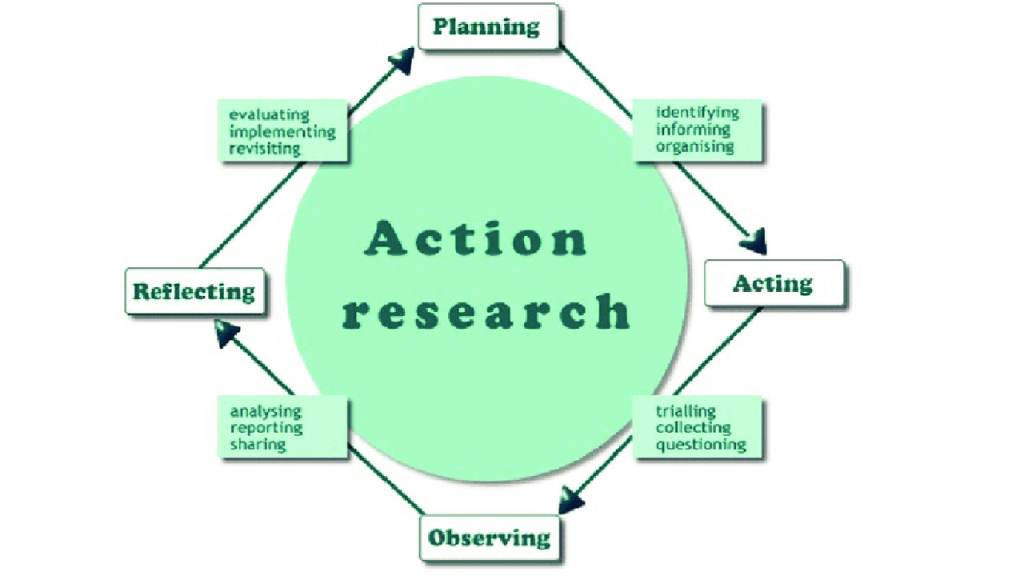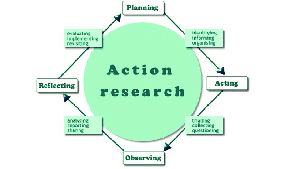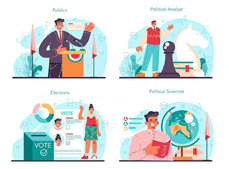Are you curious about the innovative teaching methods used in education today? One approach that has gained popularity is action research. This article will explore the concept of action research in education, providing a comprehensive understanding of its purpose, benefits, and implementation.

Photo by researchgate.net
Action research is a systematic process where educators identify a problem or challenge within their classroom or school setting, conduct research to gain insights, and then make informed changes to improve teaching and learning outcomes. It is a collaborative and reflective method that empowers teachers to actively participate in improving their own practice.
The purpose of action research
Action research serves multiple purposes in education. Firstly, it allows teachers to address specific challenges or problems they encounter in their classrooms. By engaging in action research, educators can identify areas of improvement and develop targeted strategies to enhance student learning experiences. This purpose aligns with the broader goal of improving overall educational practices and outcomes.
Secondly, action research helps build a culture of continuous improvement and professional growth among teachers. By encouraging educators to critically examine their teaching methods, experiment with new approaches, and reflect on the outcomes, action research fosters a mindset of lifelong learning and development. It empowers teachers to be active agents of change within their educational settings.
Lastly, action research contributes to the body of educational knowledge and research. Through their investigations and findings, educators can share insights, best practices, and evidence-based strategies with their colleagues and the wider educational community. This collective knowledge enhances the field of education as a whole, benefiting teachers and students alike.
Key principles of action research
Action research is grounded in several key principles that guide the process and ensure its effectiveness. These principles include:
Collaboration: Action research emphasizes collaboration between teachers, students, and other stakeholders. By involving all parties in the research process, a more comprehensive understanding of the problem and potential solutions can be achieved. Collaboration also builds a sense of shared responsibility and ownership of the outcomes.
Reflection: Reflection is a fundamental component of action research. Educators are encouraged to critically analyze their teaching practices, assess the impact on student learning, and identify areas for improvement. Reflection allows for deep insights and informed decision-making.
Cyclical nature: Action research is an iterative process that involves multiple cycles of planning, acting, observing, and reflecting. Each cycle builds upon the previous one, allowing for adjustments, refinements, and further exploration. This cyclical nature ensures continuous improvement and ongoing learning.
Ethical considerations: Ethical considerations are paramount in action research. Educators must prioritize the well-being and consent of their students, ensuring that research activities do not disrupt or harm the learning environment. Confidentiality, privacy, and informed consent are essential elements of ethical action research.
Action research process
The action research process typically consists of several stages that guide educators through the research journey. While the specific steps may vary depending on the context and goals, the following stages provide a general framework:
Problem identification: The first step in action research is identifying a problem or challenge within the educational setting. This could be related to student performance, classroom management, instructional strategies, or any other aspect impacting teaching and learning.
Literature review: Once the problem is identified, educators conduct a literature review to gather existing knowledge and research related to the problem at hand. This step helps inform the research question and provides a foundation for the subsequent stages.
Data collection: In this stage, educators collect relevant data to gain insights into the problem. Data can be gathered through various methods such as surveys, observations, interviews, or analyzing student work. It is important to use reliable and valid data collection methods to ensure the accuracy and integrity of the research.
Data analysis: After data collection, educators analyze the gathered data to identify patterns, trends, and potential solutions. This analysis helps draw meaningful conclusions and informs the subsequent action planning stage.
Action planning: Based on the data analysis, educators develop action plans to address the identified problem. These plans outline the specific strategies, interventions, or changes that will be implemented to improve student outcomes. It is crucial to ensure that the action plans are evidence-based and aligned with the research findings.
Implementation and monitoring: In this stage, educators implement the action plans in their classrooms or educational settings. They monitor the outcomes, collect additional data if necessary, and assess the effectiveness of the implemented changes.
Reflection and evaluation: After implementing the action plans, educators reflect on the outcomes and evaluate the impact on student learning. This reflection helps identify strengths, areas for improvement, and potential adjustments for future cycles of action research.
Steps to conduct action research in education
The successful implementation of action research requires a systematic approach. Here are the steps to conduct action research in education:
Identify a problem or challenge: Begin by identifying a specific problem or challenge within your classroom or educational setting. This could be related to student performance, engagement, behavior, or any other aspect that you believe needs improvement.
Formulate research questions: Once the problem is identified, formulate research questions that will guide your investigation. The research questions should be focused, specific, and aligned with the problem you want to address.
Conduct a literature review: Conduct a comprehensive literature review to explore existing research, theories, and best practices related to your research questions. This will help you build a theoretical foundation and inform your data collection and analysis methods.
Choose data collection methods: Select appropriate data collection methods that will allow you to gather relevant information to answer your research questions. Common data collection methods include surveys, interviews, observations, and analyzing student work.
Collect and analyze data: Collect the data using the chosen methods and analyze it using appropriate statistical or qualitative analysis techniques. Look for patterns, trends, and insights that will inform your action plans.
Develop action plans: Based on the data analysis, develop action plans that outline the specific strategies, interventions, or changes you will implement to address the identified problem. Ensure that your action plans are realistic, evidence-based, and aligned with your research findings.
Implement and monitor: Implement the action plans in your classroom or educational setting, and monitor the outcomes. Collect additional data if necessary to assess the effectiveness of the implemented changes.
Reflect and evaluate: Reflect on the outcomes and evaluate the impact of the implemented changes on student learning. Consider the strengths, weaknesses, and lessons learned from the action research process. Use this reflection to inform future cycles of action research or to refine your teaching practices.
Examples of action research in education
Action research has been successfully implemented in various educational settings, yielding positive outcomes for both teachers and students. Here are a few examples of action research in education:
Addressing student engagement
A teacher notices a lack of student engagement during group work activities. Through action research, the teacher explores different instructional strategies, such as incorporating technology or implementing cooperative learning structures. The research findings guide the teacher in designing more engaging activities, resulting in increased student participation and motivation.
Improving reading comprehension
A group of teachers collaboratively conducts action research to improve students’ reading comprehension skills. They identify the specific challenges students face and experiment with different instructional approaches, such as explicit reading strategies instruction or implementing literature circles. The action research process helps the teachers identify effective strategies and tailor their instruction to meet the diverse needs of their students.
Enhancing parental involvement
A school administrator recognizes the need to increase parental involvement in school activities. Through action research, the administrator explores different methods to engage parents, such as organizing workshops, creating a parent-teacher association, or implementing a communication app. The research findings inform the school’s approach to parental involvement, resulting in increased participation and collaboration between parents and the school community.
Benefits of using action research in education
Implementing action research in education offers numerous benefits for both educators and students. Some of the key benefits include:
Improved teaching practices
Action research helps educators critically reflect on their teaching practices and make informed changes based on evidence. This leads to enhanced instructional strategies, more targeted interventions, and ultimately, improved teaching practices.
Increased student engagement and achievement
By tailoring instruction to meet students’ specific needs and addressing identified challenges, action research promotes increased student engagement and achievement. The personalized approach ensures that students receive the support and resources necessary for their success.
Professional growth and development
Engaging in action research fosters a culture of continuous professional growth and development among educators. It encourages them to stay abreast of current research, experiment with new instructional approaches, and reflect on their teaching practices. This ongoing learning benefits both teachers and their students.
Collaborative learning and sharing
Action research encourages collaboration and knowledge sharing among educators. By working together on research projects, teachers can learn from each other’s insights, experiences, and successes. This collaborative learning enriches the educational community and contributes to the overall improvement of teaching practices.
Empowerment and ownership
Action research empowers educators to take ownership of their teaching practices and actively participate in improving their own practice. It allows them to be agents of change within their classrooms and educational settings, leading to a sense of empowerment and fulfillment.
Challenges and limitations of action research
While action research offers numerous benefits, it is important to acknowledge the challenges and limitations that educators may encounter during the process. Some of the common challenges include:
- Time constraints: Engaging in action research requires a significant time commitment. Teachers may find it challenging to balance their research activities with their teaching responsibilities, curriculum demands, and other administrative tasks.
- Limited resources: Conducting action research may require access to specific resources, such as technology, research materials, or professional development opportunities. Limited resources can pose challenges for educators, especially those working in resource-constrained settings.
- Resistance to change: Implementing change based on the findings of action research can be met with resistance from various stakeholders, including colleagues, students, or parents. Overcoming resistance and ensuring buy-in for the proposed changes can be a significant challenge.
- Generalizability of findings: Action research is often context-specific, focusing on a particular classroom or educational setting. The findings may not be directly applicable to other contexts, limiting their generalizability.
- Ethical considerations: Ethical considerations, such as ensuring informed consent, protecting student privacy, and maintaining confidentiality, are crucial in action research. Educators must navigate these ethical challenges carefully to ensure the well-being and rights of their students.
Resources and tools for conducting action research
Numerous resources and tools are available to support educators in conducting action research. These resources provide guidance, frameworks, and practical examples to facilitate the research process. Some recommended resources include:
Professional organizations
Educational associations and professional organizations often provide resources and support for action research. Examples include the National Education Association (NEA), the American Educational Research Association (AERA), and the Action Research Network of the Americas (ARNA).
Action research books and publications
There are several books and publications dedicated to action research in education. Some recommended titles include “Action Research: A Guide for the Teacher Researcher” by Geoffrey E. Mills, “Action Research for Teachers: Traveling the Yellow Brick Road” by Mary L. Cahill, and “The Reflective Educator’s Guide to Classroom Research” by Nancy Fichtman Dana and Diane Yendol-Hoppey.
Online platforms and communities
Online platforms and communities, such as Edutopia, Teaching Channel, and Action Research Exchange, provide resources, examples, and opportunities for educators to connect with others engaged in action research.
Research methodologies and data analysis tools
Familiarize yourself with various research methodologies and data analysis tools that are relevant to action research. Qualitative research methods, such as interviews and observations, can be complemented by quantitative data analysis tools like Excel or statistical software.
Conclusion and future prospects of action research in education
Action research is a powerful tool for educational improvement and professional growth. It empowers educators to address specific challenges, enhance teaching practices, and improve student outcomes. Through collaboration, reflection, and data-driven decision-making, action research fosters a culture of continuous improvement and lifelong learning.
As technology advances and educational practices evolve, the future prospects of action research in education are promising. The integration of digital tools, data analytics, and online collaboration platforms can further enhance the action research process, making it more accessible, efficient, and impactful. The collective knowledge and research generated through action research will continue to contribute to the field of education, benefiting teachers, students, and the wider educational community.
If you are interested in exploring effective ways to drive educational improvement and enhance student learning experiences, action research is a must-have tool in your professional toolkit. Embrace the power of action research and empower yourself to make a positive impact on the lives of your students.




